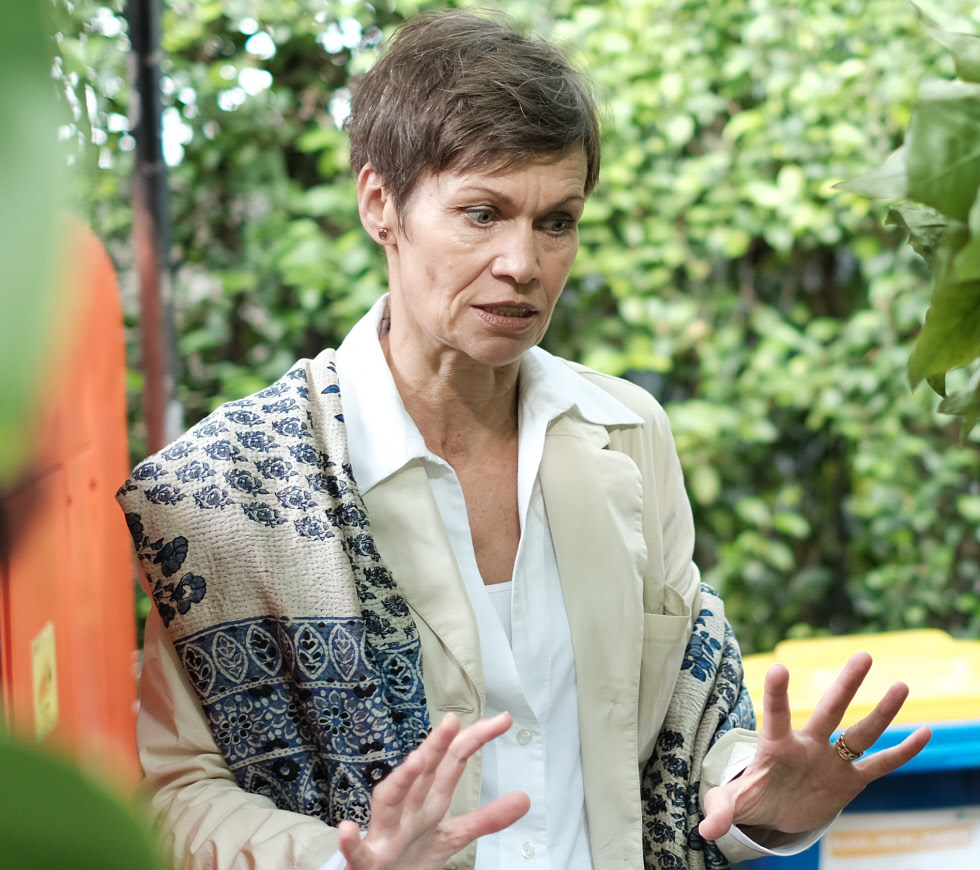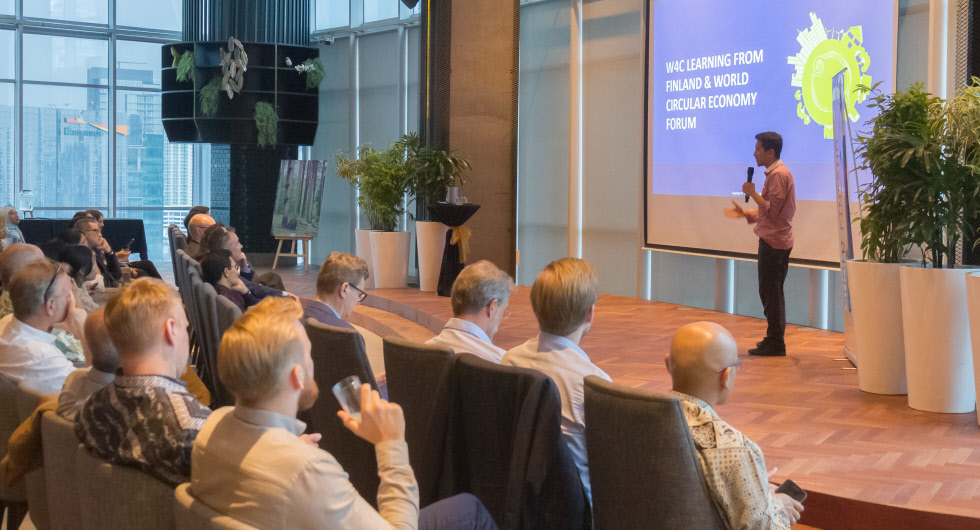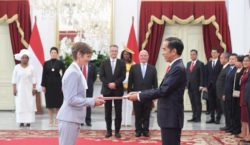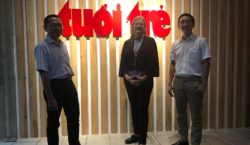Indonesia’s challenges relating to waste are immense, while this sector also constitutes very promising business opportunities – not least for the Nordic countries. There are huge needs for things to be done. And while the country’s waste situation is so dire, it is mainly thanks to some private sector initiatives that efforts to actually address the problem and pave the way for solutions can be seen. It is meanwhile encouraging that Indonesia has started to embrace circular economy while grappling with its mounting waste.
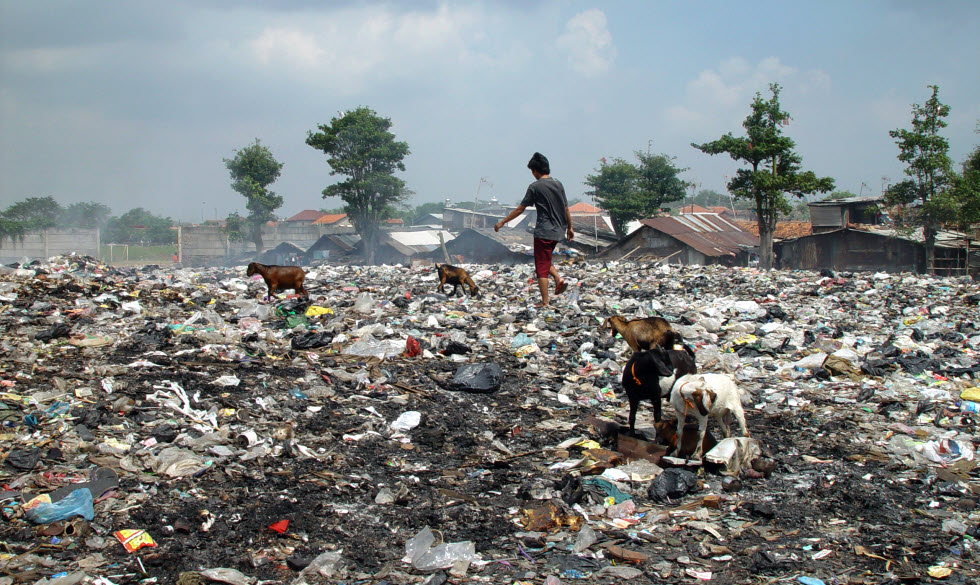
Denmark, Finland, Norway and Sweden are all positioning themselves as providers of solutions, with highly interesting initiatives in order to take pole position, and of course to help Indonesia hands-on in the fight against environmental degradation. Several of the Nordic countries have also engaged with Waste4Change (W4C), a social enterprise which offers waste management services with an environmental friendly and responsible approach towards a zero-waste Indonesia.
Waste4change, along with some of the Nordic embassies in Indonesia, share further insights into the waste topic and on their joint efforts to increase attention around the numerous methods and available solutions to deal with what is a big waste crisis not only for Indonesia but also for the world.
Mr Mohamad Bijaksana Junerosano started W4C on the basis that that many people are desperate to do better for their waste, especially when it comes to segregation. Many of them are willing and already segregate the waste, but they find it useless as the waste collector ends up mixing it back together again.
The solution must be responsible waste management, offered by W4C as 100% holistic, end-to-end waste management for companies, buildings, and businesses to reduce the number of waste that piles up in the landfill. Their service ensures that all waste will be managed responsibly and with no waste is transported to the landfill.
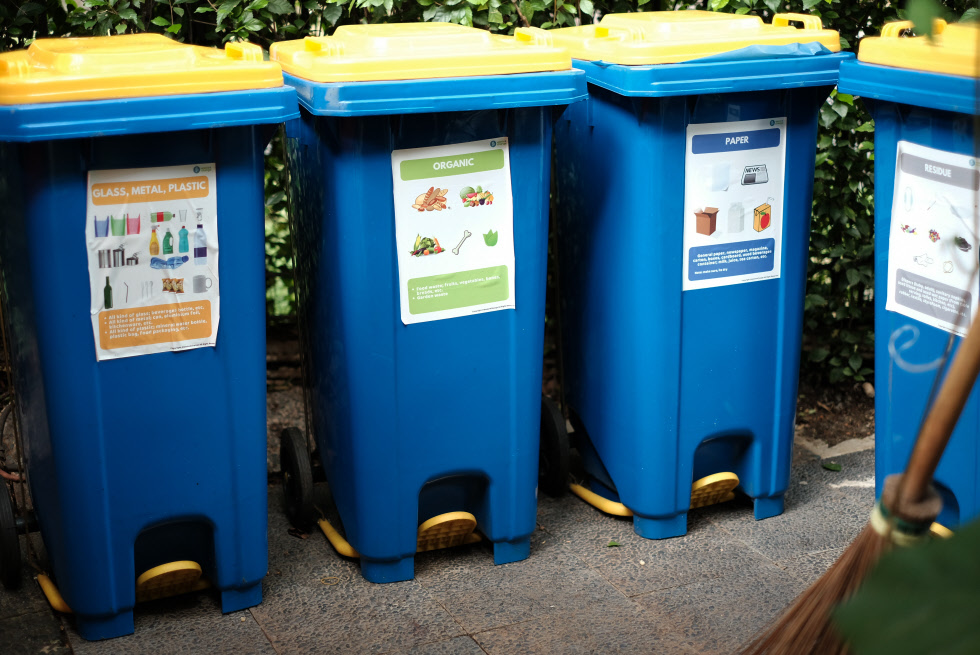
Indonesia currently produces nearly 200,000 tonnes of rubbish a day and its landfills are running out of space.
“We consult and campaign on the issue of waste management to the private sector, government agencies and communities alike, while at the same time we collect waste and create value out of it from our clients (the 4 Cs of W4C). Our work strives towards implementing circular economy in Indonesia to give bigger impact to the society and environment,” informs researcher Adhitya Prayoga.
The Embassy of Sweden in Jakarta has been implementing W4C’s Zero-Waste to Landfill (ZWTL) waste management service for its office since 2018. All the waste from the embassy office and residence in Jakarta office is thus being collected and responsibly managed. The Finnish and Norwegian Embassies are also customers.
“The Embassy of Sweden, just like other embassies and offices we serve in Jakarta, are our clients. As with any other client, we first conduct training to the staff so that they understand how and what to segregate. We then collect the waste responsibly (keep the waste segregated) to our material recovery facility (MRF). In our MRF, we segregate in more detail and collect data from the waste. This data is reported to the client, who gets information on the composition and characteristics of their waste, as well as the segregation performance of their staff. We then give tips on how to segregate better. The report is given monthly and clients are paying based on the volume they generate, thus giving them incentives to reduce their waste,” explains Adhitya Prayoga.
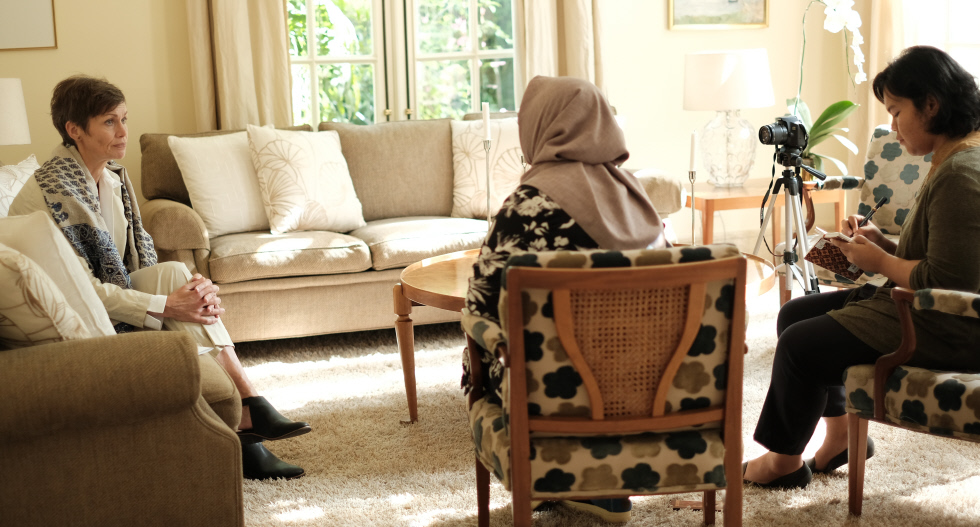
Sweden’s Ambassador to Indonesia, HE Marina Berg has expressed her support in creating a better environment for Indonesia and the world through early education about waste management. Through W4C, the Embassy is hoping that it could help promoting waste sorting in Indonesia.
“We believe that it’s a reputable waste management company, and that is currently working on promoting recycling culture in Indonesia,” replies the ambassador.
“We learned about their services in early 2018 and discussed with fellow Nordic embassies to start using their services, which reflect Nordic values on sustainability as a way of life. We procured their services in July 2018 and renew the agreement annually.”
According to Marina Berg it is still not very common among businesses in Indonesia to use such services but that the interest is growing – not least among Swedish companies and other embassies.
“W4C is the first of its kind and we feel that there is a positive response from the public on what W4C has to offer. The Swedish Embassy is happy to support its businesses and help it grow.”
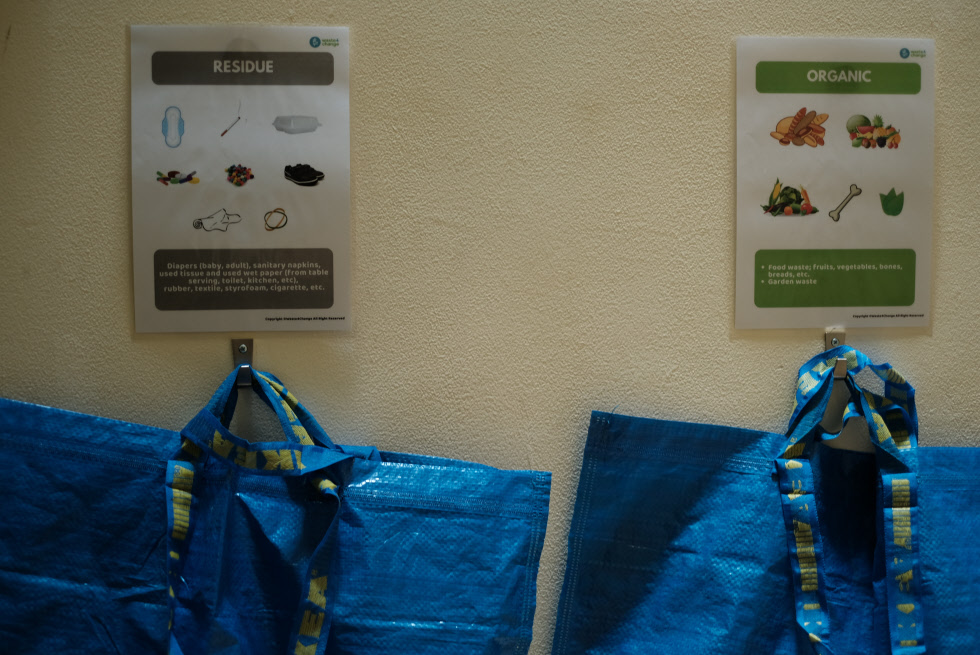
The embassy thinks that in order to reach circular economy Indonesia needs to start with something small, such as the 3Rs – reduce, reuse, and recycle. And not only the authorities but also citizens have to be aware of the importance of sustainable living, including waste management and energy consumption.
Commenting on the feedback and demand for their services W4C states: “The fact that we are currently growing rapidly with increased revenue every year shows that the demand is increasing. We have received positive feedback from communities, government agencies and private sectors alike and we aim to sustain the quality of our services.”
There are many similar organizations in other cities; EcoBali in Bali, Roda Hijau in Medan, Parongpong in Bandung. But W4C currently operates with the biggest capacity (average 15 TPD with max capacity of 25 TPD).
“The government supports the establishment of the so-called TPS 3Rs and Waste Banks. These facilities encourage source segregation and maximized recycling by doing some pre-processing or organic composting. However, these are led by community groups and are often not sustained after being established. As much as I hate to say it, it does seem like it is entirely up to a company like us to catalyze waste management that aligns with circular economy,” says Adhitya Prayoga.
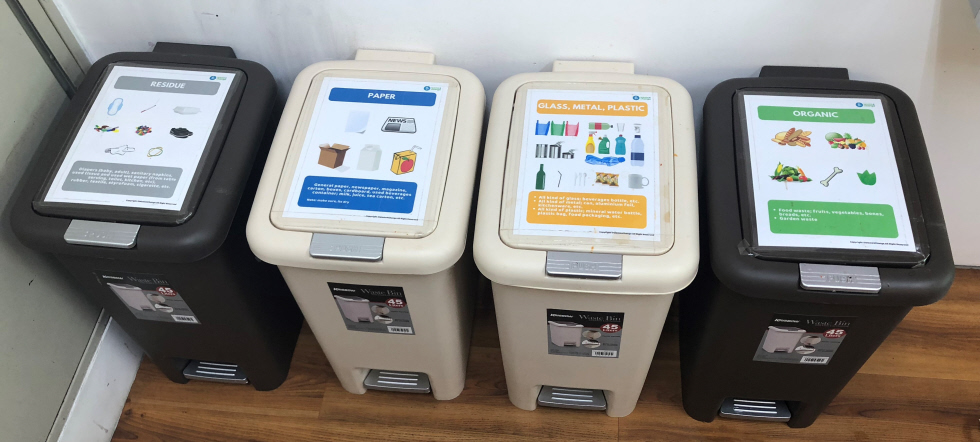
“According to the Ministry of Environment and Forestry in 2015, only 7.5% of Indonesia’s waste is being recycled and composted. Source segregation is rarely enforced in Indonesia. In 2014 the National Statistical Agency reported that 81% of our waste is mixed. And the issue of waste management has just lately been talked about due to the popular Jambeck study and recent flash floods. The problem with Indonesia is not that there are no policies. In fact, the policies and laws are actually good laws. The problem is that the laws are not enforced!”
Based on research led by Jenna Jambeck of University of Georgia, Indonesia is the world’s second-largest ocean plastic polluter. Population size and the quality of waste management systems largely determine which countries contribute the greatest mass of un-captured waste available to become plastic marine debris. Without waste management infrastructure improvements, the cumulative quantity of plastic waste available to enter the ocean from land is predicted to increase by an order of magnitude by 2025.
The informal sector dominates completely as source for recycling companies to buy up waste with value. “The value chain always starts from the informal sector; scavengers or material pickers collect as individuals. They then sell to junk shops that usually bale the waste. Junk shop then sell to bigger aggregators that usually have some sort of pre-processing infrastructure. These aggregators then sell to recycling factories or end-users of the material,” continues Adhitya.
“The fact that the value chain is long makes recycling expensive. To cut through the value chain also means the loss of jobs, albeit very high-risk but nevertheless jobs. Our vision at W4C is to accommodate and find a sustainable solution to this–very–nuanced situation in Indonesia’s recycling sector.”
Embassy of Sweden, Jakarta also has views on the role of legislation and sees the low level of recycling in Indonesia (only 9% sorted and reused according to Indonesia’s Statistic Agency) as both an opportunity and challenge to work on: “There’s an opportunity for recycling businesses to grow and for foreign investors to invest. Most of all it’s a challenge that needs to be tackled immediately. The current conventional system of waste sorting and recycling must be changed through cooperation between the Government, the private sector and the academia. Only by increasing the awareness and the education you and change the mindsets of people. That is what’s needed to make the Government change rules and regulations. Political reforms are desperately needed in order to improve recycling and waste management in Indonesia. The political will and support will grow by public awareness,” says Marina Berg.
W4C, meanwhile, informs that Indonesia actually has set an ambitious target with a policy decision called National Strategic Policy for waste management. It sets a target for Indonesia to manage 100% of their waste by 2025; 30% by reduction and 70% by processing (recycling and recovery).
“The National Policy is expected to be enacted at the regional level (called Jakstrada) and one example in Jakarta is the plan for the so-called ITFs (Intermediate Treatment Facilities). The first ITF is a Waste-to-Energy incinerator with a capacity of 2200 TPD generating 35 Mega Watt per hour. The other ITFs are being planned but we are racing against time trying to manage the 7500 TPD currently directed to landfill which is nearing its maximum capacity in 2021.”
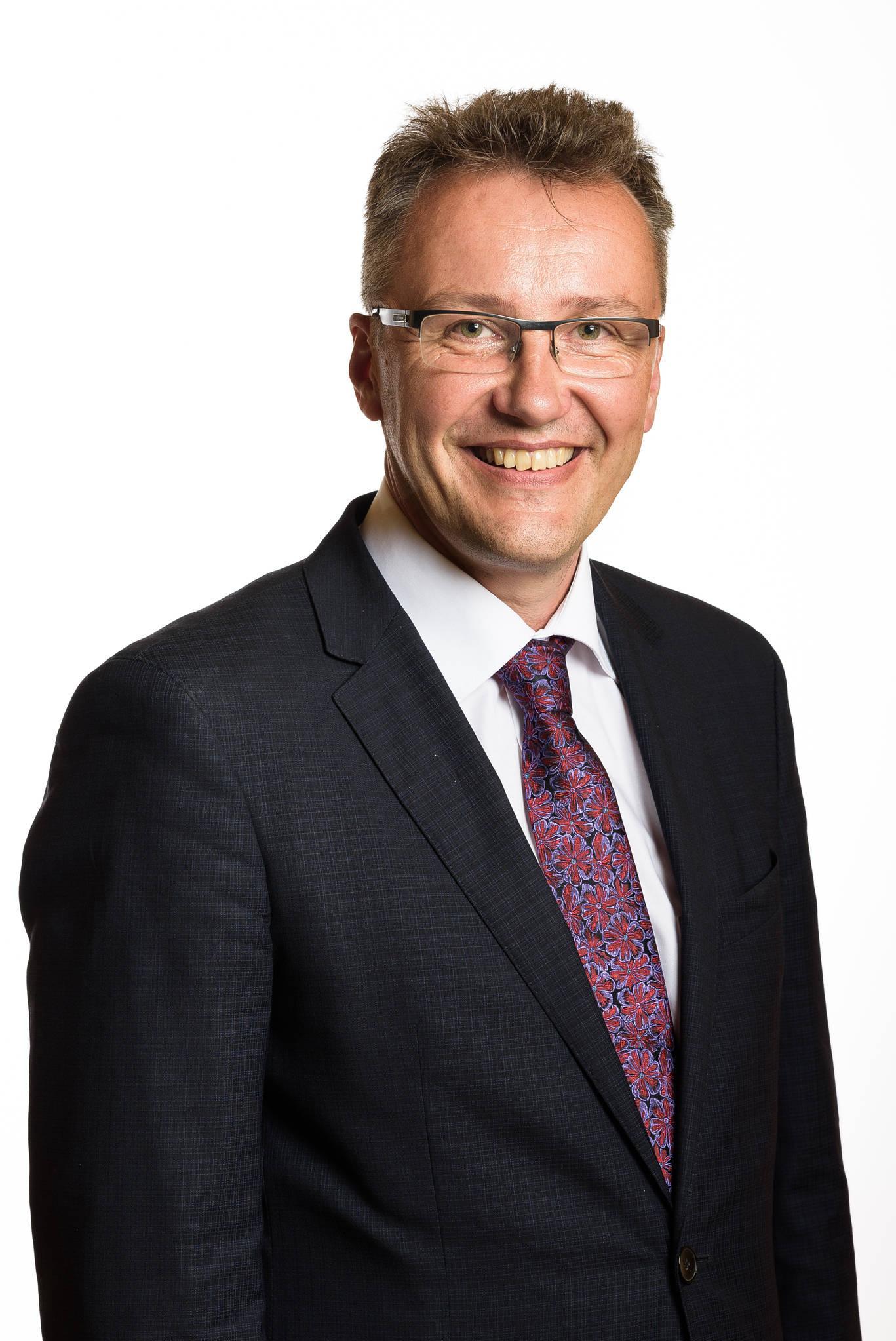
According the Embassy of Finland, Jakarta a Finnish energy company negotiates on this first waste-to-energy project in Indonesia to be constructed in Jakarta.
“Many other cities face the looming waste challenge as well so there are similar other projects to be implemented in Indonesia. Finnish companies have a lot of experience in renewable energy and their offers are competitive. Finland has the second-highest share of renewable energy in Europe,” states Ambassador HE Jari Sinkari.
Adhitya Prayoga from W4C thinks that waste-to-energy has big potential in Indonesia. “But of course this should not be the only solution; it must always be paired with waste reduction efforts and maximizing recycling rate. Source segregation is still key to increase calorific value (on average 50% of Indonesia’s waste is organic waste with high moisture content) for it to be feasible for waste-to-energy facility.”
Adhitya also points to that there is so far no proof of successful pilot projects in Indonesia with biomass so there is a general disbelief that what works in other countries may not work in Indonesia.
“And finally, any good sustainable waste management facility must have a gate fee or tipping fee. The problem in Indonesia is that any new waste management facility is expected to not have a gate/tipping fee, as the city usually doesn’t have enough budget to finance that. Consequently, this reduces the interest to build waste management facilities, be it waste to energy, waste to value or biomass energy.”
Denmark is also strongly committed to help and offer solutions relating to solid waste management. An MoU was signed with Indonesia in late 2017 that also concerns circular economy. A government-to-government cooperation is included between the two environmental authorities within solid waste management. On a peer-to-peer basis they work order to support policies and regulatory frameworks for better conditions, including for private sector investment.
Since early 2019 Denmark also has the Strategic Sector Cooperation (SSC) with Indonesia aiming at, among others, raising capacity to implement the Indonesian waste regulation – Jakstranas. The partners explore preconditions and requirements for best Indonesian practices in order to suggest successful interventions in other parts of the country.
And ‘Converting Waste to Energy with Sustainable Island Initiative (SII)’ is a joint add-on initiative part of the existing SSC, which aims to support the islands Lombok and Riau towards a green and low carbon pathway through more effective solid waste management and sustainable bioenergy solutions.
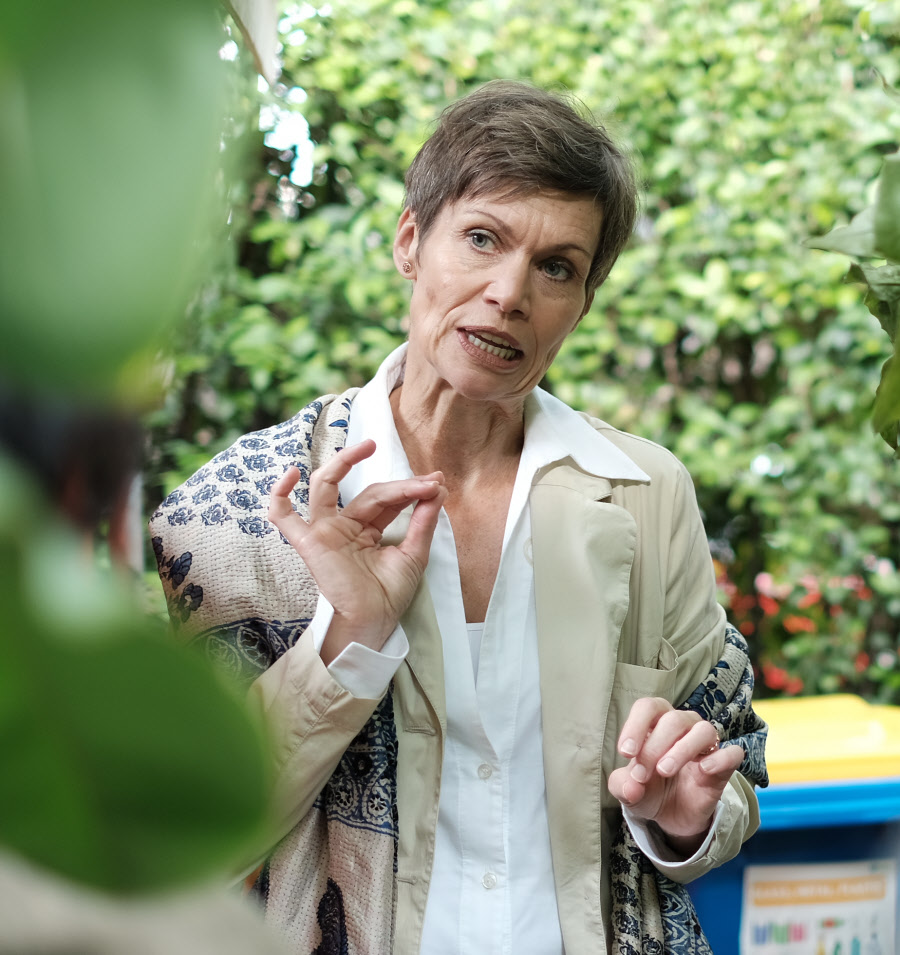
Swedish stakeholders, for their part, try to work together with the Indonesian Government to implement the 2030 Agenda for Sustainable Development, as well as the Paris Agreement.
“We promote the Swedish lessons learned and experience on sustainable living and technical solutions from the Swedish public and private sectors. We present the wide range of high technical solutions that Sweden can provide,” says Marina Berg.
Among the Swedish players The Swedish Energy Agency is particularly active in Indonesia.
Sweden arranged a Smart City exhibition in Jakarta in 2019, which included waste management: “The exhibition showcased that many Swedish cities use smart systems for waste management. In Stockholm, the waste management system combines underground waste transportation and optical sorting technologies, incorporating smart metering, identification sensors and software. A city cannot be smart unless it’s sustainable.”
Finland is also focusing on achieving the SDGs together with Indonesia: “The response to the challenges related for example to improving material efficiency and energy access provide also good opportunities for collaboration. Finland has commercially viable solutions to offer and strengths based on experimentation of new technologies and cooperation between public and private actors,” says its ambassador.
He furthermore points out that usage of renewable energy also requires smart grid solutions, where Finnish companies provide such solutions; from intelligent measuring to energy storage solutions.
Finnish companies are also engaged with their Indonesia partners in developing electric vehicles, infrastructure, usage of biofuels, as well as production of those.
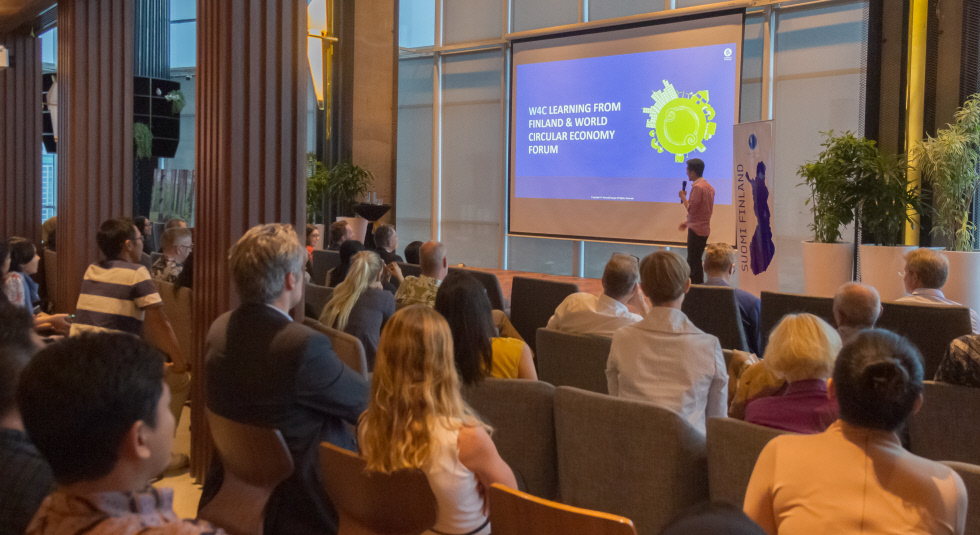
“Finnish companies have also a special interest towards solving the marine plastic waste issue from the collection to recycling and valorisation of the waste. Trials are about to begin in Indonesia within a few months,” Jari Sinkari adds and continues: “To make collection of plastic sustainable you would have to find ways in which it would have a market price. That would incentivize its collection. For example, one Finnish company is analyzing the quality of plastic waste; having taken samples from an Indonesian river (upstream, midstream) and ocean (downstream). According to their testing they would decide whether the plastic could be re-used or if its incineration into energy be the best solution. Another challenge is also the physical collection from river. There is an interesting initiative by a Finnish–Indonesian consortium to test the collection.
Indonesia is also showing interest in circular economy but has a long way to go, according to W4C. Only three years ago W4C, together with Greeneration Foundation, helped to create the first Indonesia Circular Economy Forum (which has also received funding from the Embassy of Denmark).
“Circular economy is a fairly new concept in Indonesia but is growing in popularity rapidly. Policies are now being made that aligns Indonesia towards implementing this. However, much more efforts need to be done quicker,” says Adhitya Prayoga.
In October 2019 the Finnish embassy hosted a circular economy seminar to highlight Finland’s experiences and the potential in Indonesia.
“The seminar brought together interested stakeholders with the aim of increasing knowledge about circular economy possibilities as well as sharing the Finnish and Indonesian experiences. The seminar was also instrumental in intensifying cooperation with Waste4Change,” informs its ambassador.
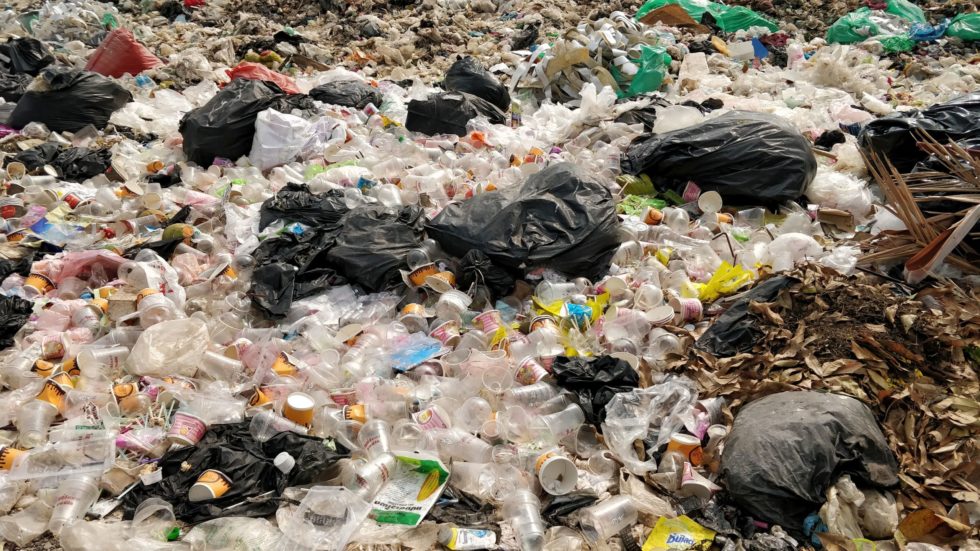
“Our seminar can be seen as one stretch of a relay race for the better future. The seminar/ Finnish-Indonesian dialogue on circular economy was followed by strong Finnish participation in the Indonesia Circular Economy Forum.”
As part of the wider seminar outreach and follow-up, some ideas presented in the seminar were brought forward by VTT (VTT=Technical Research Centre of Finland) specialists to their Indonesian counterpart (BPPT). Also, an Indonesian waste management delegation visited Finland.
W4C winds up how Indonesia should go about implementing circular economy: “We believe that there should be much more collaboration between government, enterprises and communities in handling waste management. Producers must consider the life cycle of their products and allocate their revenue on responsibly collecting the waste their products generate and eco-design their products to generate less waste for resource efficiency or easier recycling. The government should not only create laws, but also enforce it. And the way to do it is involving and talking to stakeholders within waste management. And the community definitely plays a role in behaviour change and waste segregation at source. This is also why we design our services to catalyze these kinds of collaborations.”
